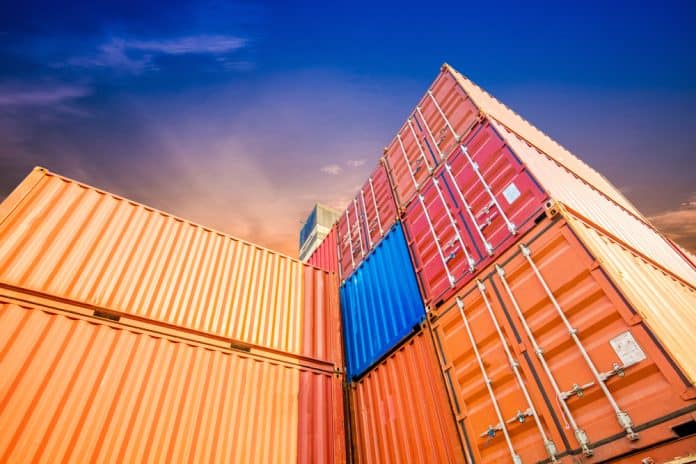Continuous technological progress has prompted the shipping industry to increasingly move toward its digital transformation over the years and embrace various initiatives to benefit supply chain actors, enable performance monitoring, and offer improved decision‐support tools. In the wake of the industrial digitalization strategy, key actors have adopted and implemented such solutions that aim to upgrade conventional freight containers with onboard tracking and monitoring capabilities, security devices, and other multiple sensors, eliminating inefficiencies.
Smart containers are shipping containers used in freight and logistics that are integrated with Internet technologies, sensors, GPS tracking and solar panels.
The containers are designed to regulate internal conditions, provide real-time GPS tracking, enhance security, and provide condition data that can alert operators to any potential issues with the cargo. The information gathered is automatically fed into digital shipment records, which can be shared with the customer to provide up to date tracking and can be used to better predict arrival times at ports to enable optimized unloading of containers and distribution to the next phase of the supply chain. Smart shipping containers can be self‐powered by solar panels on their exterior and have batteries to enable energy to be stored.
Supply chain requirements have changed in recent years. Today, to satisfy higher demands, better track the movement of cargo, and respond to issues, supply chain stakeholders are focusing more on ways to improve the visibility, quality, and security of their containers. Smart containers can provide accurate real‐time data about the condition, location, and environment directly to operators. Smart containers are one way to create a more efficient, safe, and sustainable shipping supply chain. These are much like regular containers but are pre‐installed with sensors. A smart container is just a regular container, but you put a little chip in it that has a connection with a network.
Collecting such data can help to optimize the supply chain.
Sensor data provides hyper‐accurate information about the location of a container, allowing for optimized fleet management that results in less repositioning and more efficient use of fuel. The existing manual method of tracking the progress of containers means information shared with customers or port operators is usually outdated, which makes it difficult to predict when ships might arrive at their destination. The use of smart container solutions guarantees the transparency of operational movements and events within the supply chain. Data sharing is particularly important in the logistics supply chain due to the large numbers of diverse players and because container movements are global.
Digitalization fosters an environment of transparency to support competitiveness on equal
terms and enables companies to focus on containing and decreasing logistics and supply chain management costs.
Many concepts and initiatives have emerged taking into account smart container data and services.
The maritime shipping industry is taking advantage of emerging technologies and concepts including digital. Digital data streams built upon standardized data sharing provide opportunities for real‐time representation and simulation of authentic situations. Given the important role of container shipping in the global world of today, the initiatives that can improve the international supply chain performance have a great potential to facilitate global trade procedures.




